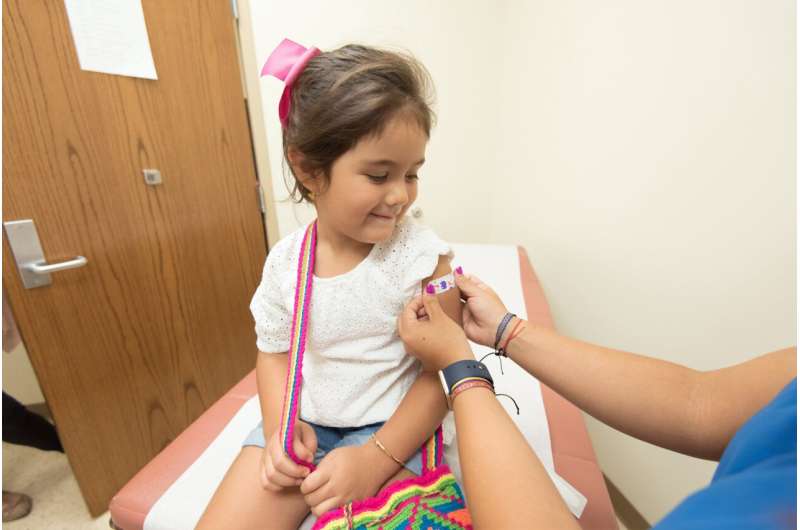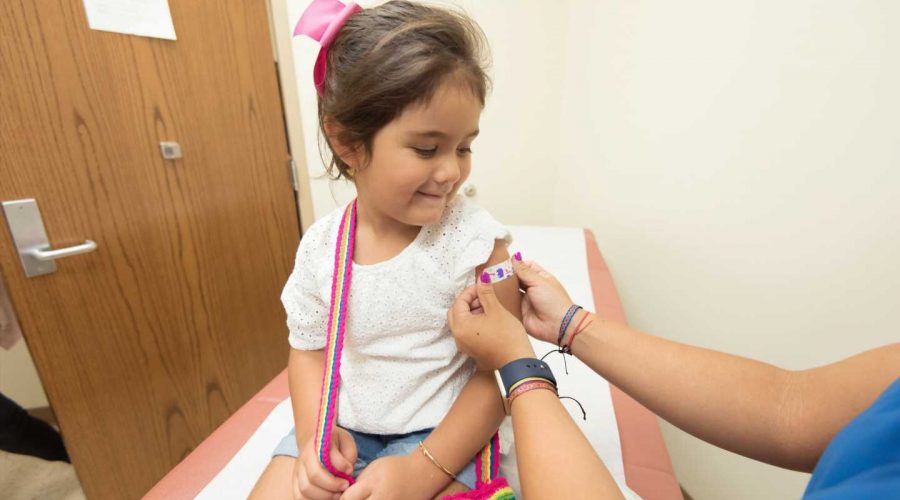People with a conspiracy mindset resist childhood vaccination, shows study

As of May 2023, only 39% of children between the ages of five and 11 had received at least one dose of a Centers for Disease Control and Prevention (CDC)-recommended vaccine against COVID-19. In an article in the journal Frontiers in Psychology, researchers Dan Romer and Kathleen Hall Jamieson of the Annenberg Public Policy Center (APPC) draw on an empaneled national probability sample of nearly 2,000 U.S. adults to explain the role that having a conspiracy mindset in 2021 plays in adult reluctance to vaccinate children in 2022.
The study builds on earlier work showing that embrace of a conspiracy mindset predicts reluctance to take the adult COVID-19 vaccine. In the current study, the researchers examined the relation between conspiratorial thinking measured at baseline in 2021, and belief in misinformation and conspiracies about COVID vaccines, trust in various health authorities, perceived risk of COVID to children, and belief in conspiracy theories about the pandemic’s origin and impact.
The study finds that the 17% of the sample that strongly held a conspiratorial mindset—defined as a disposition to accept conspiracy theories about the workings of government and other centers of power—tend to be skeptical of government authority and associated health agencies, such as the CDC or the Food and Drug Administration. Those respondents are also more likely to believe misinformation about vaccination, more likely to believe COVID-specific conspiracies about how vaccines are created and how the pandemic was managed, and less likely to view COVID-19 infection as harmful to children. Each of these beliefs is related to unwillingness to recommend vaccinating children ages 5 to 11 for COVID-19 and separately to recommend that children be given the measles, mumps, and rubella (MMR) vaccine.
“Our findings forecast challenges for the future control of childhood infections,” says Romer, research director of APPC and lead author of the study. “Although the CDC continues to recommend vaccination for COVID-19 in children of school age, persons with a conspiratorial view are clearly not accepting the recommendation. The opposition to vaccinating for COVID also extends to other vaccines that are part of the normal childhood vaccine program, such as the MMR vaccine.”
Respondents holding a conspiracy mindset also tended to use politically conservative media such as Fox News and to avoid more mainstream news sources, such as major national newspapers and broadcast televised news, suggesting that those with a conspiracy mindset engage with media that affirm their beliefs rather than media that provide recommendations supported by health authorities.
More information:
Daniel Romer et al, The role of conspiracy mindset in reducing support for child vaccination for COVID-19 in the United States, Frontiers in Psychology (2023). DOI: 10.3389/fpsyg.2023.1175571
Journal information:
Frontiers in Psychology
Source: Read Full Article
